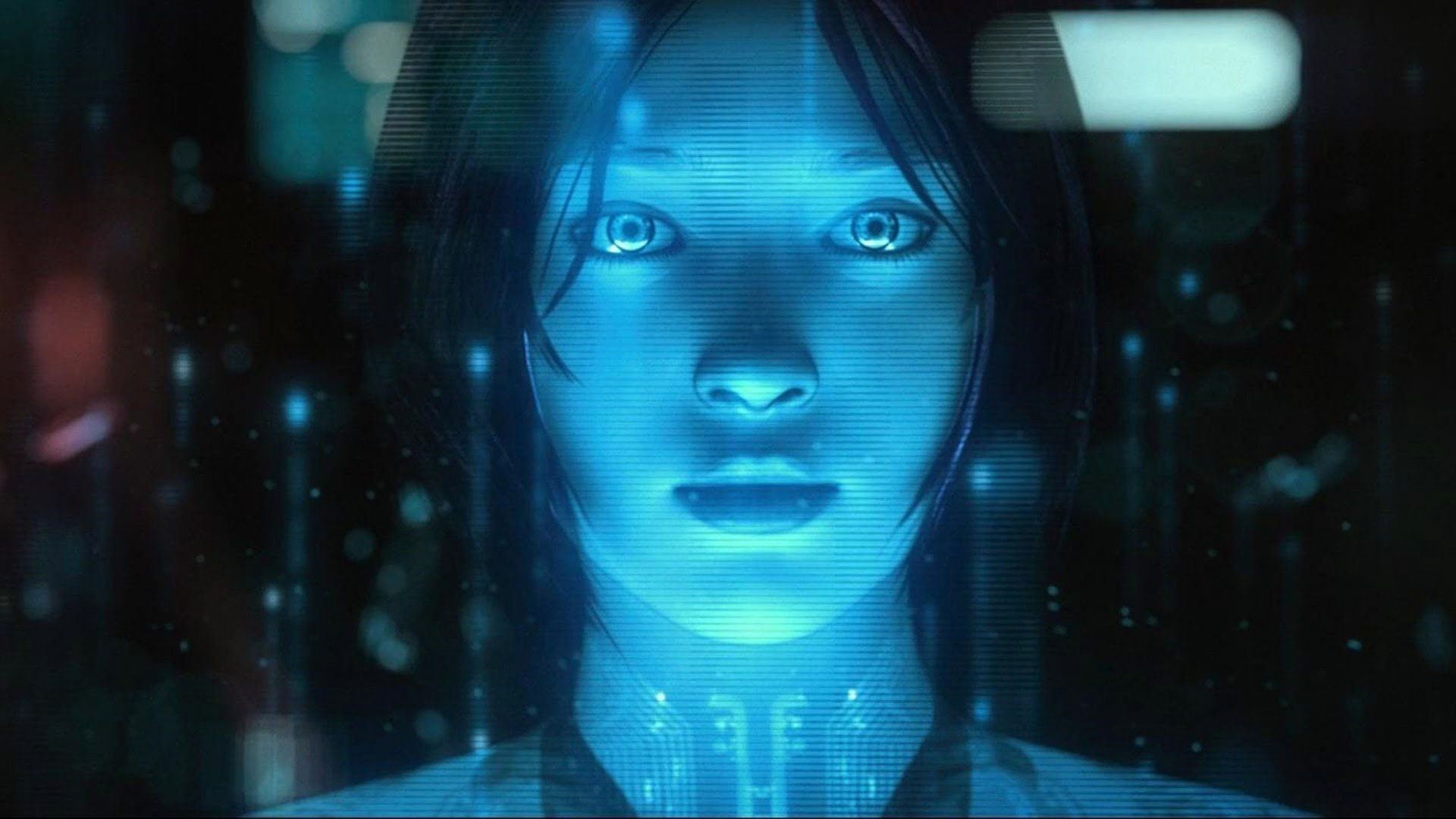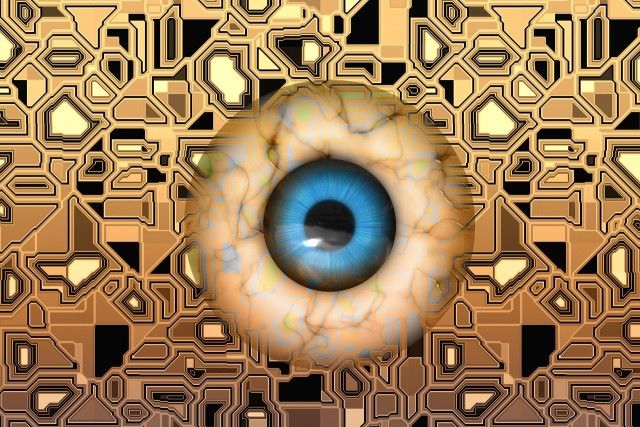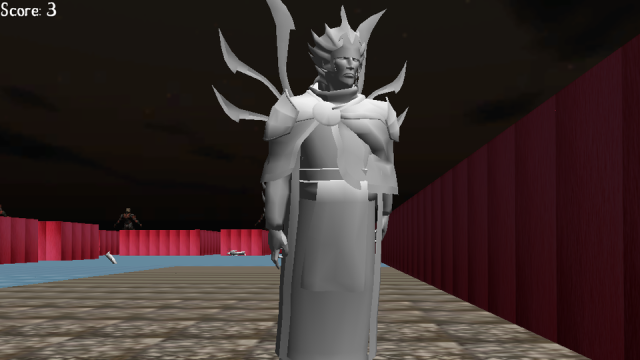Let's be honest: video game AI (artificial intelligence) isn't all that great. It's functional (most of the time), but it lacks the flexibility and common sense of real people. You can see this in the enormous popularity of online multiplayer games — most computer-generated characters fall flat in complex situations, so we turn to other people to pick up the slack. Consider the first five seconds of this video:
While it's amusing to see a cop nonchalantly drive over another cop in GTA, it also instantly breaks the illusion that the characters are thinking beings. However, that sad reality is beginning to shift, thanks to recent advances in artificial intelligence.
A Beneficial Partnership
It's obvious that video games have a lot to gain from AI technology, but artificial intelligence also has a lot to gain from video games. A Microsoft Research project proposed:
AI research and video games are a mutually beneficial combination. On the one hand, AI technology can provide solutions to an increasing demand to add realistic, intelligent behaviour to the virtual creatures that populate a game world. On the other hand, as game environments become more complex and realistic, they offer a range of excellent testbeds for fundamental AI research.
For most of us, though, artificial intelligence in video games simply means we get a more realistic gaming experience. But what does that mean, exactly?
How It Works
With the power of artificial intelligence, NPCs (non-player characters) will be smarter and more capable of human-like learning and planning. The ability for an NPC to learn and adapt accordingly is really powerful. The technology for really compelling experiences is still a way off, but there's some reason for hope.
The last five years have seen a major revolution in artificial intelligence technology, via the use of so-called 'deep learning' techniques, which allow the efficient creation of much larger neural networks, which can reason abstractly about complex data. This kind of processing can be made much more efficient with the use of neuromorphic chips, which implement neural networks directly in hardware. Potentially, videogames could farm AI tasks out to cloud servers using dedicated neuromorphic chips. This would prevent game developers from having to choose between clever AI and good graphics, since the AI could be done cloud-side, taking the burden off of individual computers. This would also allow the AI algorithms in use to share insights and knowledge between users, making everybody's experience smarter.
Right now, most videogame AI works using decision trees -- simple flow charts of behaviors, structured by hand, which take a few variables into account and use them to select a course of action. This is very simple and computationally cheap, but not very robust - when you get to a situation that the flow chart creator didn't plan for, you often get nonsensical behavior. In the future, it'll be possible for developers to 'train' more sophisticated neural networks to respond to much more data in much subtler and more flexible ways.
Google has already created a network [Broken URL Removed] that can look at an image and describe in natural language what's happening in it. It isn't a huge leap to imagine AI characters that can lucidly describe what's happening and why, and can both form complex future plans to achieve goals, and discuss those plans with the player. This kind of depth and flexibility will open up entirely new genres of gaming, and will also probably make more than a few of you uncomfortable (for a good fictional take on the subject, check out "Non Player Character").
Ethics
Everyone has their own opinion about the future of AI in video games. Some folks are genuinely excited to play with smarter NPCs, while others raise ethical concerns about casually creating and destroying intelligent characters. Some wonder about relationships that may develop between players and NPCs and how those will be handled by society.
However, it's important to understand what artificial intelligence isn't: we're creating intelligence, not consciousness — and there is a difference. From where I'm sitting, concerns about morals won't really be relevant to videogames for a long time. Autonomous warfare, on the other hand, is another story.
Putting ethical questions aside, what will it feel like to play games alongside advanced AI characters?
Realistic Encounters
Emily Short, a game designer known for psychologically complex interactive fiction, teamed up with former Sims 3 programmer Richard Evans to establish experimental game studio LittleTextPeople. The goal? To investigate the potential of dynamic, social AI in video games.
The studio's first game, Cotillion, features characters that interact with one another while also pursuing their own goals and motivations, and the game narrates the resulting entanglements via text, generating paragraphs of description and dialogue in real time — and everything can be manipulated by the player.
"Our project isn't so freeform that you can type in anything, but it’s more fluid [than dialogue trees]," Short told Edge Online. "The simulator Richard created has the potential to have people exhibit finely grained eccentricities, so it’s possible to write characters who grunt when spoken to, or like to talk about themselves and take the conversational initiative more than they should."
In a talk at GDC 2012, Short provided some examples:
There’s a scene where the characters have been in a carriage accident in the middle of the night, and they've been left at the roadside by the driver of the carriage, who knows this neighborhood is haunted. So he’s freaked out and left. Elizabeth’s just got out of the wreck, but she didn't see the driver leave. So the world model has given her the question: ‘Where did the driver go?’ Lucy knows the answer to this question, so she says, ‘Well, the driver thinks this area has a bad reputation, so he fled.’ Her particular phrasing of that is customized. Her character is supposed to be a little bit diffident, so she has her own way of saying that. Then there’s a standardized response. The doctor says, ‘Actually, I bet he left because he was scared of us being mad that he wrecked our carriage.’ And that’s tagged as potentially meant to be humorous. And Lucy has the opportunity to decide: ‘Do I find that humorous or not?’ She does, so she laughs. This model gives us the opportunity to have very fine-grained characterization, and to have characterization where people express personal eccentricities through the style and the shape of their conversation.
With this kind of technology in development, it's clear that gamers have an exciting future to look forward to.
Computer-Developed Games
It makes sense for artificial intelligence to make a home for itself within video games, but could it also develop them? That's what Michael Cook, researcher at Goldsmiths College and PhD student from Imperial College London, set out to find when he developed a program called ANGELINA.
ANGELINA — short for "A Novel Game-Evolving Labrat I've Named ANGELINA" — develops video games based on various parameters set by Cook.
Take a look:
Pretty creepy, and probably not something you'd mistake for the work of a human developer.
But that may not always be the case. As time goes on, ANGELINA requires less and less input from Cook. In the future, he aims to teach the program to write its own code and develop its own games independently.
"Right now, people are sharing ANGELINA's games because ANGELINA is cool," Cook told Polygon. "One day they'll be sharing the games because the games are cool."
What do you think about artificial intelligence in video games? Is there specific games or genres of AI-enabled game you're looking forward to? Let us know in the comments below!
Image Credit: Pixabay, calloftreyarch / Youtube



